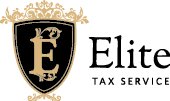FAQs
General Personal Tax Questions
Q: When is the personal tax filing deadline in Canada?
A: The deadline for most individuals is April 30th. If you or your spouse/common-law partner are self-employed, the deadline is June 15th, but any balance owing is due by April 30th.
Q: How do I file my personal income tax return in Canada?
A: You can file online using NETFILE-certified software, mail a paper return, or use a tax professional.
Q: What documents do I need to file my taxes?
A: T4 slips (employment income), T5 slips (investment income), RRSP contribution receipts, medical receipts, charitable donations, and other income-related documents.
Q: How long should I keep my tax records?
A: CRA recommends keeping records for at least six years from the end of the tax year to which they relate.
Q: What happens if I file my taxes late?
A: You may be charged interest and penalties on any taxes owed after the deadline.
Income Reporting
Q: What types of income do I need to report on my Canadian tax return?
A: Employment income, self-employment income, rental income, capital gains, dividends, interest, pension income, and government benefits like CERB or EI.
Q: How is rental income taxed in Canada?
A: Net Rental income is taxed as your regular income. You must report your rental income, and you can deduct related expenses such as mortgage interest, property taxes, insurance, and maintenance to get to your Net Rental Income.
Q: How are capital gains taxed?
A: Only 50% of the capital gain is taxable at your marginal tax rate.
Q: Do I have to report foreign income?
A: Yes, all worldwide income must be reported to the CRA.
Deductions and Credits
Q: What are the common personal tax deductions?
A: RRSP contributions, child care expenses, union dues, moving expenses (if eligible), and interest on student loans.
Q: What tax credits can I claim?
A: Basic personal amount, Canada employment amount, GST/HST credit, medical expense credit, charitable donations, and tuition credits. The credits you claim will depend on your individual circumstances
Q: Can I claim home office expenses?
A: Yes, if you worked from home due to COVID-19 or your employer requires it, you may qualify.
Q: How do RRSP contributions affect my taxes?
A: Contributions reduce your taxable income, which can lower your overall tax payable.
Tax on Investments
Q: How is dividend income taxed in Canada?
A: Eligible dividends receive a dividend tax credit to reduce taxes payable.
Q: What are Tax-Free Savings Accounts (TFSAs)?
A: Contributions to TFSAs are not deductible, but investment income and withdrawals are tax-free.
Q: How are Registered Retirement Income Fund (RRIF) withdrawals taxed?
A: Withdrawals are considered taxable income.
Self-Employment and Small Business
Q: How do I report self-employment income?
A: You must report your gross income and deduct eligible business expenses on a T2125 form.
Q: What business expenses can I deduct?
A: Office supplies, vehicle expenses, home office costs, advertising, and professional fees, to name a few.
Q: When do I have to pay instalments?
A: If you owe more than $3,000 in taxes in the current or previous year, you may have to pay quarterly instalments.
Family and Dependents
Q: Can I claim my spouse or common-law partner as a dependent?
A: Yes, if their income is below a certain threshold.
Q: What credits are available for children?
A: Canada Child Benefit (CCB), child care expenses deduction, and eligible dependant credit.
Q: How is child support treated for tax?
A: Child support payments are not taxable or deductible.
Tax on Life Events
Q: How does getting married affect my taxes?
A: You must report your marital status, which can affect benefits and credits.
Q: What happens when I have a baby?
A: You can apply for the Canada Child Benefit and claim child care expenses.
Q: How is divorce or separation handled for tax purposes?
A: You need to update your marital status and may claim support payments or dependents differently.
Tax Benefits and Government Programs
Q: What is the Canada Child Benefit (CCB)?
A: A tax-free monthly payment to eligible families to help with the cost of raising children.
Q: What is GST/HST credit?
A: A tax-free quarterly payment to low- and modest-income individuals to offset GST/HST paid.
Q: How does the Canada Workers Benefit (CWB) work?
A: It provides tax relief for low-income workers.
Tax Audits and CRA Interaction
Q: How do I respond to a CRA audit or request?
A: Provide requested documents promptly and consider seeking professional advice.
Q: What are common reasons for CRA audits?
A: Large deductions, inconsistent income reporting, unreported income, and random selection.
Q: How can I check my tax refund status?
A: Use the CRA’s “My Account” online service or call the CRA.
Tax Payments and Refunds
Q: How do I pay my taxes owed?
A: Online banking, CRA My Payment, credit card, or mailing a cheque.
Q: When will I get my tax refund?
A: Typically within two weeks of electronic filing or eight weeks for paper returns.
Q: Can I set up a payment plan with CRA?
A: Yes, if you cannot pay your balance in full, contact CRA to arrange a payment plan.
Common Tax Myths
Q: Is it true that I don’t have to file if I made less than $10,000?
A: No, you should file to claim benefits and avoid penalties.
Q: Does the CRA check my social media?
A: The CRA may review publicly available information if they suspect unreported income.
Q: Can I avoid taxes by working cash-in-hand?
A: No, failing to report income is illegal and can result in penalties.
